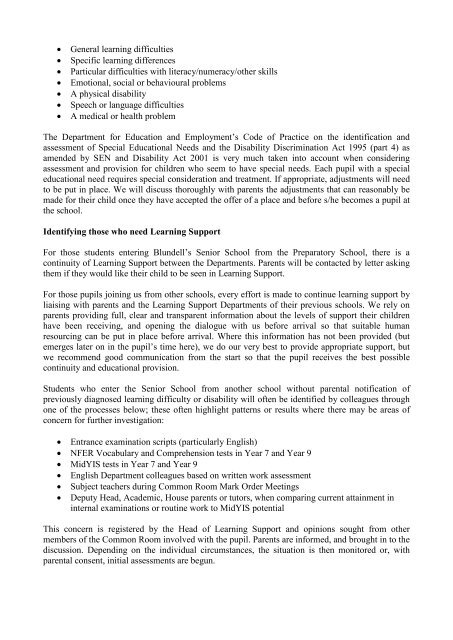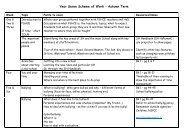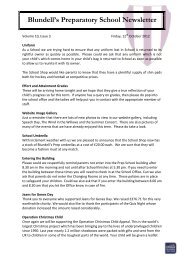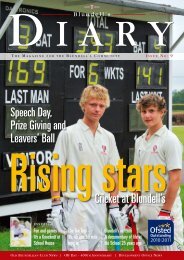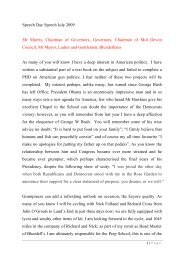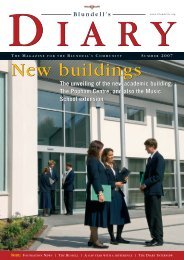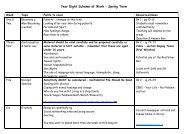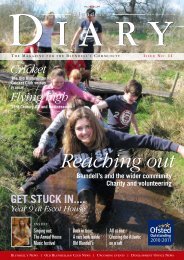Learning Support - Blundell's School
Learning Support - Blundell's School
Learning Support - Blundell's School
- No tags were found...
Create successful ePaper yourself
Turn your PDF publications into a flip-book with our unique Google optimized e-Paper software.
• General learning difficulties• Specific learning differences• Particular difficulties with literacy/numeracy/other skills• Emotional, social or behavioural problems• A physical disability• Speech or language difficulties• A medical or health problemThe Department for Education and Employment’s Code of Practice on the identification andassessment of Special Educational Needs and the Disability Discrimination Act 1995 (part 4) asamended by SEN and Disability Act 2001 is very much taken into account when consideringassessment and provision for children who seem to have special needs. Each pupil with a specialeducational need requires special consideration and treatment. If appropriate, adjustments will needto be put in place. We will discuss thoroughly with parents the adjustments that can reasonably bemade for their child once they have accepted the offer of a place and before s/he becomes a pupil atthe school.Identifying those who need <strong>Learning</strong> <strong>Support</strong>For those students entering Blundell’s Senior <strong>School</strong> from the Preparatory <strong>School</strong>, there is acontinuity of <strong>Learning</strong> <strong>Support</strong> between the Departments. Parents will be contacted by letter askingthem if they would like their child to be seen in <strong>Learning</strong> <strong>Support</strong>.For those pupils joining us from other schools, every effort is made to continue learning support byliaising with parents and the <strong>Learning</strong> <strong>Support</strong> Departments of their previous schools. We rely onparents providing full, clear and transparent information about the levels of support their childrenhave been receiving, and opening the dialogue with us before arrival so that suitable humanresourcing can be put in place before arrival. Where this information has not been provided (butemerges later on in the pupil’s time here), we do our very best to provide appropriate support, butwe recommend good communication from the start so that the pupil receives the best possiblecontinuity and educational provision.Students who enter the Senior <strong>School</strong> from another school without parental notification ofpreviously diagnosed learning difficulty or disability will often be identified by colleagues throughone of the processes below; these often highlight patterns or results where there may be areas ofconcern for further investigation:• Entrance examination scripts (particularly English)• NFER Vocabulary and Comprehension tests in Year 7 and Year 9• MidYIS tests in Year 7 and Year 9• English Department colleagues based on written work assessment• Subject teachers during Common Room Mark Order Meetings• Deputy Head, Academic, House parents or tutors, when comparing current attainment ininternal examinations or routine work to MidYIS potentialThis concern is registered by the Head of <strong>Learning</strong> <strong>Support</strong> and opinions sought from othermembers of the Common Room involved with the pupil. Parents are informed, and brought in to thediscussion. Depending on the individual circumstances, the situation is then monitored or, withparental consent, initial assessments are begun.


